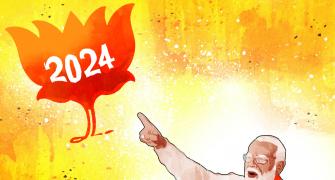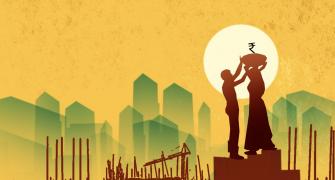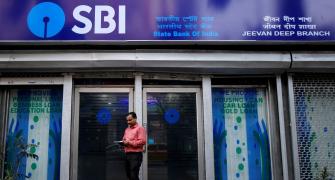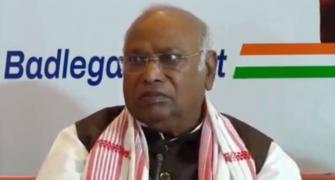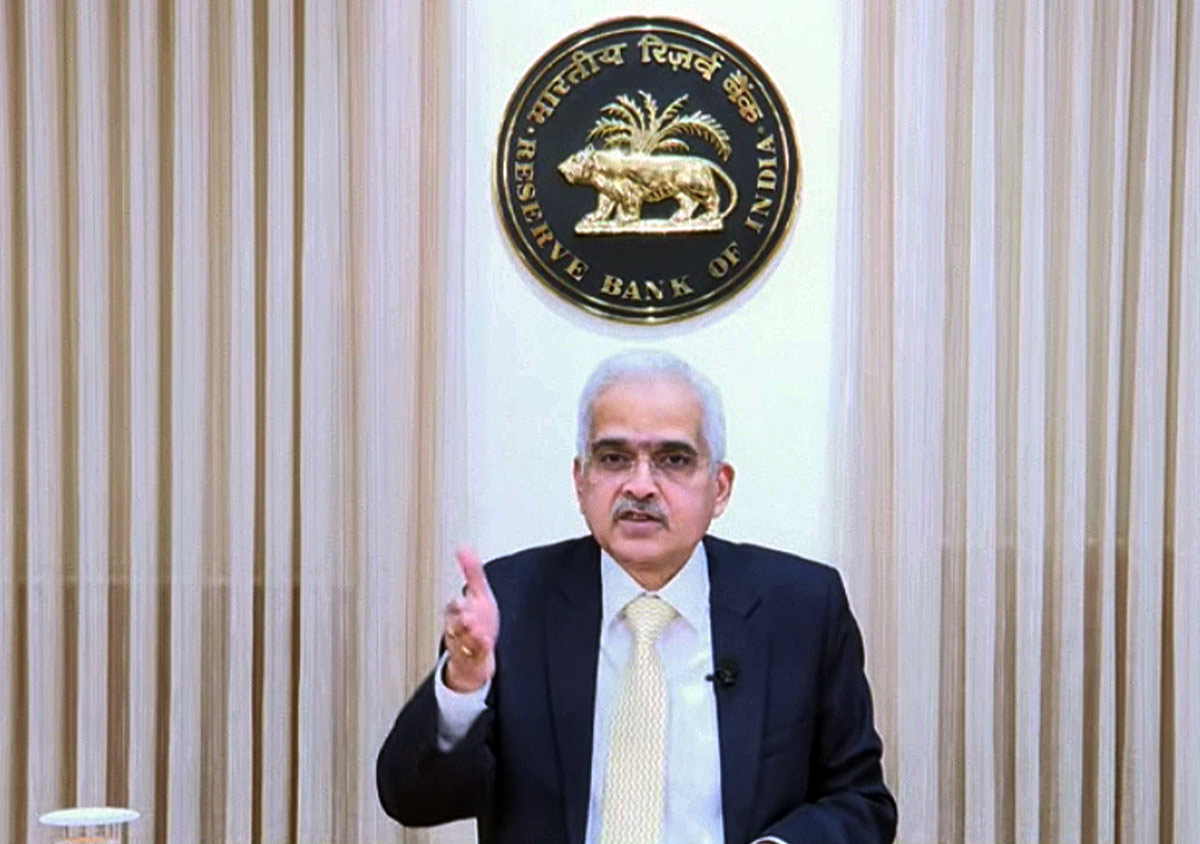This period of strong growth not only offers opportunities but also calls for strategic considerations to ensure sustainable development and equitable prosperity in the years to come, suggests Sujan Hajra.

India's gross domestic product (GDP) growth figures, at 8.4 per cent for the quarter ending December 2023 (Q3), and a projected annual growth of 7.6 per cent, have been significantly ahead of expectations.
This prompts a closer examination of the underlying dynamics and their implications for the future.
At first glance, the numbers present a paradox. How do we reconcile this robust GDP growth with the modest increase in private consumption, under 4 per cent, and an actual contraction in government spending?
This raises eyebrows, especially in light of the 27 per cent surge in personal income-tax collections between April 2023 and January 2024.
Similarly, the resilience of fixed investment growth seems at odds with the perception that private sector capital expenditure remains subdued.
Yet, such discrepancies in India's economic data are not unprecedented.
That's also the case with large downward revisions of past data that boost recent growth rates.
Rather than getting ensnared in a debate over data accuracy or methodology, it is crucial to grasp the broader picture these figures paint.
India's economy, as also corporate earnings, has consistently outperformed expectations.
This phenomenon is not unique to India; similar patterns are evident in other economies as well, including the United States.
Interestingly, the aggressive interest rate hikes of 2022 and 2023 have not dampened fixed investment, historically the most interest-sensitive GDP component.
This resilience prompts speculation about the future impact of these policies and whether businesses perceive the rate increases as a temporary hurdle rather than a long-term challenge.
A deeper dive into the GDP data reveals several key drivers of growth in the December 2023 quarter: A double-digit increase in real fixed investment, a significant rise in valuables, and a contained import share of GDP, which mitigated the traditional drag of net exports on growth.
Interestingly, discrepancies in GDP calculations, which represent the unallocated part of GDP, have shifted from a significant negative to a minor positive, contributing 40 per cent of the quarter's growth.
On the demand side, robust investment activity signals business confidence, while on the supply side, the resilience across industrial sectors, notably manufacturing and construction, and a surge in services activity underscore the economy's dynamic nature.
However, the contraction in agriculture, coupled with low growth in private consumption, signals potential vulnerabilities that warrant attention.
India's stellar GDP performance cements its status as the world's fastest-growing major economy, a position the country is poised to maintain.
Yet, this growth comes with a caveat; inflation remains above the central bank's target, suggesting that interest rate reductions are unlikely in the near term unless macroeconomic conditions deteriorate significantly.
Initially, FY24 growth expectations ranged between 6 per cent and 6.5 per cent.
Now, with projections exceeding these figures by more than a percentage point, India's economic trajectory appears stronger than anticipated.
Despite the lacklustre growth in private consumption, other indicators, such as high personal and corporate income tax collections, affirm the economy's robust momentum.
This bodes well for India's equity market, indicating promising prospects for corporate earnings.
As we navigate these complex economic waters, it is imperative to look beyond the surface-level data.
The nuanced interplay of various macroeconomic factors highlights the resilience and potential of India's economy, even as it faces numerous challenges and contradictions.
This period of strong growth not only offers opportunities but also calls for strategic considerations to ensure sustainable development and equitable prosperity in the years to come.
Sujan Hajra is chief economist and executive director, Anand Rathi Shares and Stock Brokers.
Feature Presentation: Aslam Hunani/Rediff.com


